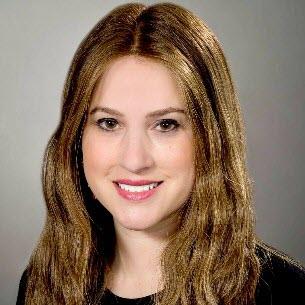Dr. Cardinale “Cardi” Smith, MD, PhD, is a medical oncologist and palliative care physician at Mount Sinai Hospital in New York. She serves as an Assistant Professor in the Division of Hematology and Medical Oncology, Tisch Cancer Institute, and Brookdale Department of Geriatrics and Palliative Medicine at the Icahn School of Medicine at Mount Sinai. I had the pleasure of meeting Dr. Smith while participating in Oncotalk®, a communications course that she coordinates for oncology professionals and trainees. I was extremely impressed with the innovative structure of the 2-day training, which incorporated didactics and practicing new skills with actor-patients. I sat with Dr. Smith to discuss how she became involved with Oncotalk and why this training is fundamental to oncologists.
MK: What is Oncotalk?
CS: Oncotalk is a communications course geared towards oncology professionals. The training session consists of four sessions over two days. Oncotalk was developed by VitalTalk, a nonprofit organization whose reported mission is to nurture healthier connections between patients and clinicians by offering courses focused on balancing honesty with empathy when discussing serious illness and end of life care.
MK: How did you get involved in Oncotalk?
CS: Towards the end of my integrated medical oncology and palliative care fellowship, I had the opportunity to be a participant in the course and, ultimately, a facilitator. One of the main emphases of the fellowship was communications skills. I realized how my mentors really valued cultivating these capabilities. They led lectures, modeled, and practiced skills with the fellows. Communicating effectively became a clinical competency on par with more common core medical skills, such as inserting arterial lines and reading EKGs. I realized how little formal education most physicians receive in these areas and wanted to bring the course to oncology trainees at Mount Sinai.
MK: How does one become an Oncotalk facilitator?
CS: Facilitators are doctors who complete rigorous training in order to become certified. Two Oncotalk facilitators lead each training session.
MK: Can you describe how the session is run?
CS: To begin each session, the facilitator leads a lecture focusing on new communication skills, such as how to identify when a patient's statement is masking an emotion that should be addressed. Next, the trainees speak individually with an actor-patient to practice skills, while the group watches and identifies which skills were utilized during the conversation. Trainees receive immediate feedback and can stop any time during the role-playing to work on new aspects of the interaction.
MK: When I participated in Oncotalk, I loved that this course was specifically geared towards oncology professionals, because it made the training more realistic and useful to my everyday patient care. How important is it for oncologists to receive specific oncology-geared communication training?
CS: Doctors and patients are regular people. Therefore, all conversational and empathic skills are important for doctors. Oncologists are often faced with discussing more sensitive and emotionally charged topics and therefore encounter some unique situations more often than other physicians. In order to maximize the time trainees have to develop communication skills, it is important to gear the course towards specific issues oncologists face in their daily practice. Thus, before each patient interaction, the facilitator shares the patient's background story and sets the stage for the conversation, whether it is sharing bad news or planning for end-of-life care.


Recent posts